
Issue 178
May 2019
Champion versus champion fights in mixed martial arts are in vogue right now. More than they’ve ever been.
Time was when the likes of BJ Penn and Randy Couture held titles in two weight divisions and that in itself was seen as utterly remarkable. But with the shift in the sport in the last few years, the ability to cut weight with ease through new techniques and dieting, allied with the need for fan-friendly, mouth-watering fights – some of them brought about by viral moments, others by the sheer commercial need to create major pay per view events – it really has become the norm.
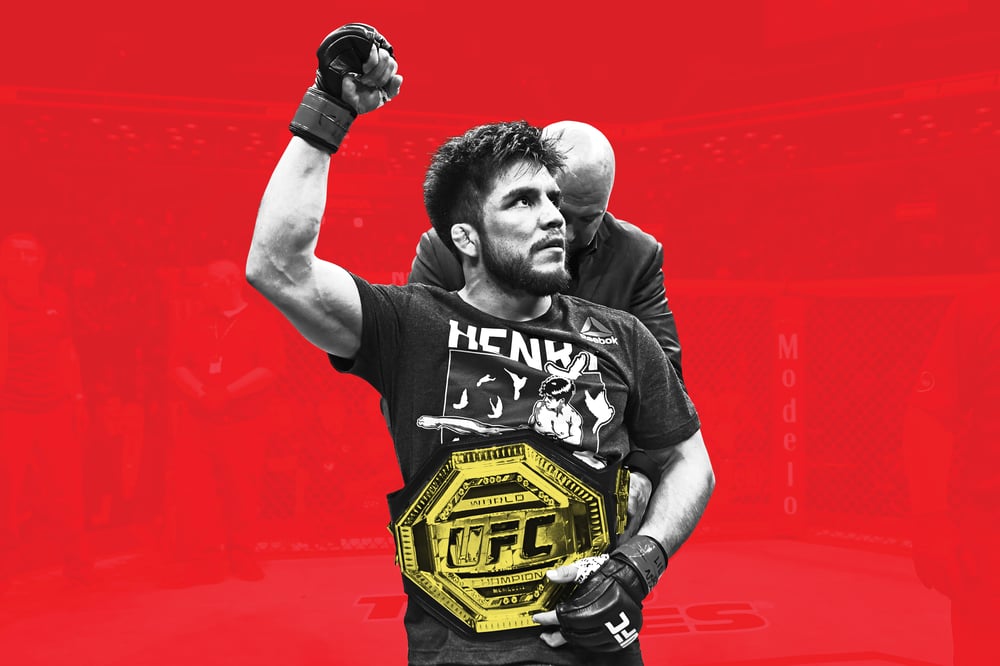
Great champions have always wanted to test themselves against heavier fighters, just as we saw with Conor McGregor moving from featherweight to lightweight. He had done it in Cage Warriors. Could he do it in the UFC? Of course, McGregor did just that, defeating Jose Aldo, and then eviscerating Eddie Alvarez in New York. Praise should be heaped on those fighting the lighter men. But does moving down hinder a champion? As it did for TJ Dillashaw as a bantamweight champion in the UFC against flyweight king Henry Cejudo. When a lighter champion comes up a division, is it a lose-lose for the heavier fighter?
We will see this when Patricio Pitbull moves up to challenge Bellator lightweight champion Michael Chandler in Bellator 221, as we saw it when, in the same fight league, Rory MacDonald at 170lbs stepped up to challenge Gegard Mousasi, the middleweight champ.
Mousasi proved too skilled, too much bigger, and this, allied to a sound technique made the task impossible for MacDonald. Not so, though, when Amanda Nunes established herself as the greatest female fighter of all time in stopping Cyborg Santos in a rapid thriller and a blur of fists. Fifty-one seconds it took in Los Angeles, in December 2018. In short, every one of these match-ups, and future ones involving the likes of Jon Jones versus, say, Francis Ngannou at heavyweight – if the big man can win the UFC’s world heavyweight crown – thrill the bones of the watching public.
The great pity in MMA, unlike boxing, is that we are unlikely ever to see two fight leagues, such as the UFC and Bellator, have a unifying fight. Both of course, have champ-champs at 205 and heavyweight in Daniel Cormier and Ryan Bader. The UFC, indeed, right now, are not even likely to see Cormier face Jones with the light-heavyweight champion meeting the heavyweight ruler. Well, at least not at present. The fans of course, are always the winners here. That may be so, but if the fans are certainly the winners, it’s not always the case for the fighters.
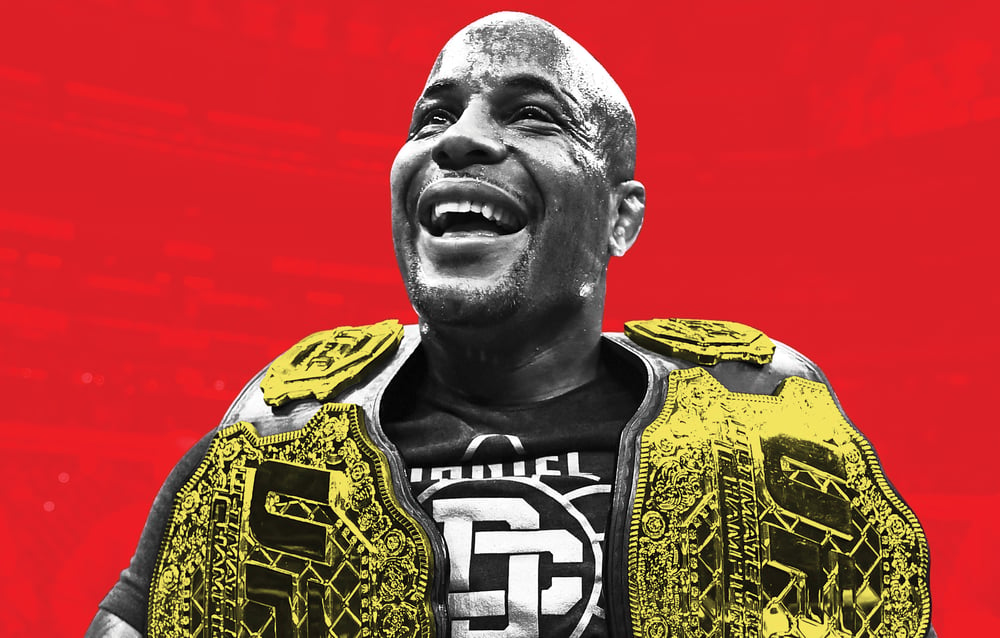
Michael Chandler, who meets Patricio Pitbull on May 11 in Rosemont, Illinois, at Bellator 218, knows there are some disadvantages, even though he is facing the naturally smaller man. 145 vs 155. Pitbull vs Puncher. Bad blood. “I guess, I mean not really for me, I have everything to lose and nothing to gain besides just beating this dude up,” is Chandler’s first reaction on whether champion vs champion fights are the highlight. It depends, also, on what is at stake. “Obviously for him, he can win two belts. For me it’s just another fight.”
But Chandler also wishes to acknowledge the size of the fight, and its standing. “I should clarify, at least I’m fighting another champion. I would much rather fight another champion at 145lbs than the next guy at 155lbs if the champion at 145lbs is a bigger name, a bigger fight and there’s some sort of rivalry. In this case, there is. Who is Bellator going to have me fight? I could fight one of the guys in the No.1 contender spot, or I could fight the second longest-standing, second-most wins, second most knockouts in Bellator history. Patricio and I are the two winningest fighters in Bellator history so this fight makes a ton of sense. And there’s that animosity because we don’t like each other.”
There really is. And it all stems from Chandler defeating Pitbull’s brother Patricky. “It happened completely organically. But I never thought we would end up fighting. I just thought he was a loudmouth. He’s done that in a couple of different fights.” The bad blood, though, as Bellator president Scott Coker sees it, makes this a mega-fight.
“We like to do these ‘Champion versus Champion’ fights when there is some heat between the fighters, or when there is a great fighter in the weight division below, as was the case with Rory and Gegard,” explains Coker.
“Pitbull and Chandler, that rivalry started when Pitbull’s brother fought Chandler and was knocked out,” he continues. “Patricio jumped on the cage and there was some dialogue, they were really ready to go right at it. You’re basically asking one of your fighters to move up or down in weight to challenge the champion. They’re both heavy hitters with amazing ground game. There will be fireworks in that fight.”
The Mousasi vs. MacDonald fight in San Jose last September was something of a two-round beatdown. It proved, in this case, that ‘A Good Big Un beats a Good Little Un’. “It showed you how good Gegard is,” reasons Coker. “He dissected Rory, who is a world-class fighter and one of the best welterweights in the world right now. He basically made it look easy. He’s comfortable at his weight. He wasn’t making any changes. It worked out for him, but it was something that was really interesting to watch. Gegard had a really good fight and executed it.”
Back to the Chandler-Pitbull match-up, and the Brazilian’s team have been screaming for Voluntary Anti-Doping Association testing. Coach Eric Albarracin, who trained the lighter man, Henry Cejudo to fight TJ Dillashaw in their match-up, but is also now preparing Patricio Pitbull for his feud fight with Chandler, explains the mindset and mentality of preparing for a bigger man.
“It’s different for each guy because Cejudo was getting a guy that was coming down and Patricio is going up. It’s almost a complete different training regimen when it comes to nutrition and strength and conditioning,” Albarracin explains. It is so much more about technique, and whether technique can overcome size. “You don’t have to restrict your diet,” Albarracin continues. “You’re The same, applies, he reckons, with Pitbull against Chandler. “Patricio is the winningest fighter in Bellator history and I believe he’s tied with Chandler. They’re both world champions and they both hate each other. Michael knocked out his brother. There’s a rivalry there that’s unmatched in Bellator. This is like MVP versus Daley but there really will be a lot more fireworks in this fight when the bell goes. It’s probably going to be a knockout.” But they are special nights. “They are, and Patricio has the mentality for this. You’re not going to see a normal person go up and challenge for the belt.
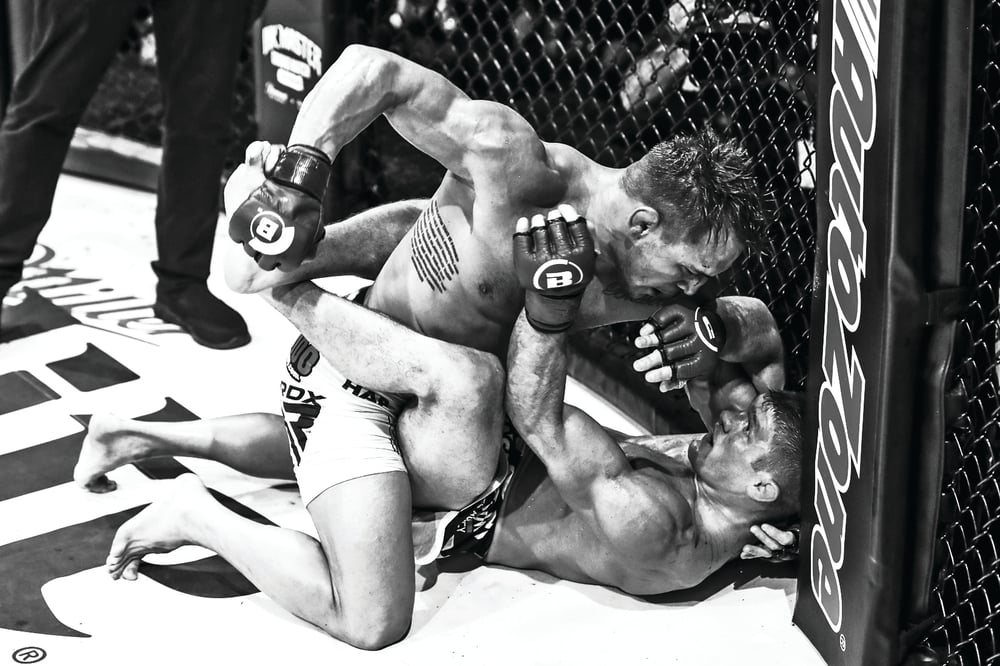
You have got to have big balls of steel to do what Patricio is doing. But he’s done it before when he fought Benson Henderson. Everyone said don’t do it because Benson was coming down from 170lbs, he’s solid muscle, he’s a former UFC champ. None of that bothered Patricio. He was cold, calm, collected and had balls of steel to go against Benson Henderson. This is kind of the same in going against Chandler, except there’s a little more rivalry here. This is the biggest fight in Bellator history.
There’s no other fight that is bigger right now. If you could find a bigger fighter, you guys let me know. These guys have been in Bellator for ten years. These guys are the pioneers. They were on Bellator when it was on MTV the Spanish channel. These guys are icons of Bellator MMA. I can’t wait to show Patricio is the greatest Bellator fighter of all time.” But they want testing.
“I couldn’t care less what he says,” is Chandler’s response to the jibes. ”Pitbull’s a small-minded, small individual. That’s what those kinds of people do. He’s accused me of some things, he’s said some silly things about me. The good thing is we’re not in the corporate world, we’re in the fight business and we can settle our differences inside the cage with four-ounce gloves.”
“Absolutely,” says Coker, on testing for the contest. “We’re going to be regulated by the Athletic Commission because that’s how we training for a bigger guy and you get to work on your technique, because you’re not worrying about dieting anymore. It’s almost an advantage to move up sometimes. What I think about champ vs champ, those are legacy fights. Henry Cejudo could chase the legacy because of the credentials he has with his Olympic gold medal. That makes him a legend already in combat sports. It would have been hard for him to be a regular fighter, beat Demetrious and then fight TJ. But because he was Olympic champion and flyweight champion who beat the greatest of all time, it allowed him to take this legendary fight. Champ vs champ is about becoming a legend. Athletes become heroes and heroes become legends. To become a legend you’ve got to have the credentials to be deserving of this fight. It’s not a legacy fight if both aren’t legends.” do it. I believe they’ll be tested a couple of times going into the fight and that night for sure being the main event.”
The wider picture of champion versus champion does appeal to Chandler. “I think they draw the attention of fighters as well as the fans,” he reasons. “The thing about champ-champ fights is obviously there’s a lot on the line. I think Randy Couture was the first to do it, but since then it’s not really happened until these last couple of years. If you have a belt then you’re moving weight. There’s usually only ten pounds separating these belts and fighters. Any fighter on any given day could be a champion in the two weight classes below or above. I think I could win the welterweight title. Heck, I even think with the right training camp I could get to 185 and do some damage there.”
Then there is a little backtracking from the thought of a title fight with Mousasi. “Look, that’s not something I’d be interested in because I’m not looking to take that type of damage unless the money was right. But I’m just saying as a blanket statement there’s only ten pounds separating these belts. So TJ going down or Conor going up, we’re all fighters and we’ve been training for decades to win fights in our weight class or the division above or below us.”
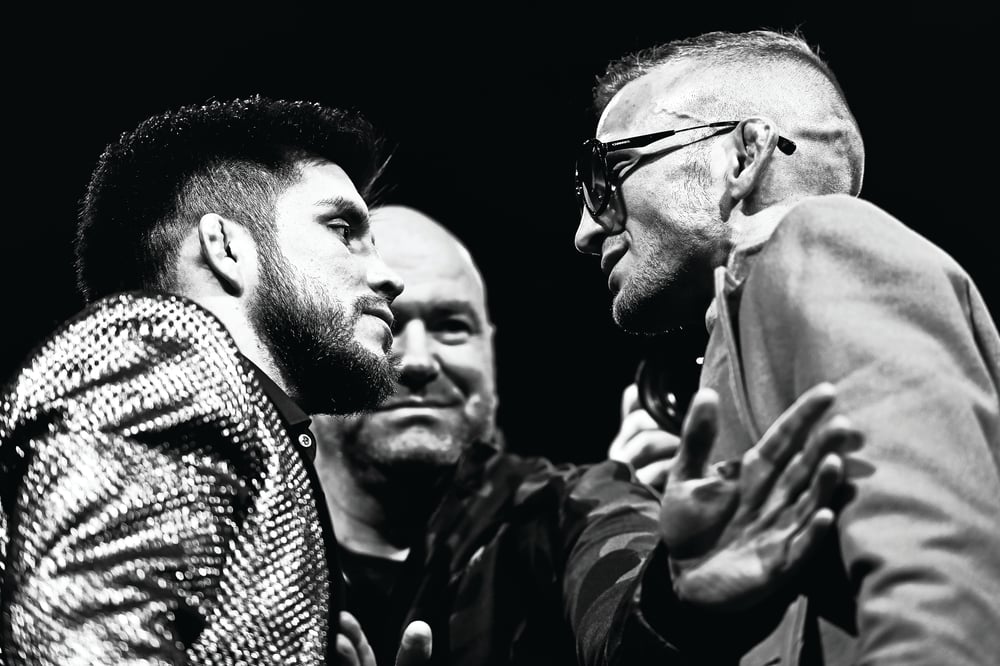
In Cejudo’s mind, his champion versus champion meeting with TJ Dillashaw was the “greatest fight in history”. Here’s his thinking. “Specifically me and TJ’s fight was the greatest championship fight in history, in my opinion. Even though it ended in 32 seconds, it was two athletes in their prime. I was 31 and TJ was 32 years old, he’s beaten the world. I just got done beating Demetrious Johnson [the former pound for pound No 1]. This wasn’t Daniel Cormier versus Stipe Miocicor Jon Jones. This was literally two of the best fighting. It was the best bantamweight and the best flyweight. Even when you have super fights, there’s a still question on who is the real champ. The way I see it, with me and TJ, the magnitude of it and the fact we’re still young, that’s what made it a lot more special than any other fight the UFC has had.”
In every corner of every gym, the champion versus champion fights threaten to thrill. Coach Greg Jackson certainly thinks so, and preparing a fighter for one intrigues him.
“In a way it’s fascinating, it’s interesting to see how different styles match up in different weight classes,” he suggests. “But so much of fighting has very little to do with that. It has to do with preparation and injury. The matrix of this skill set versus that skill set, that part’s interesting. The psychology is interesting but there’s so many variables and unknowns.”
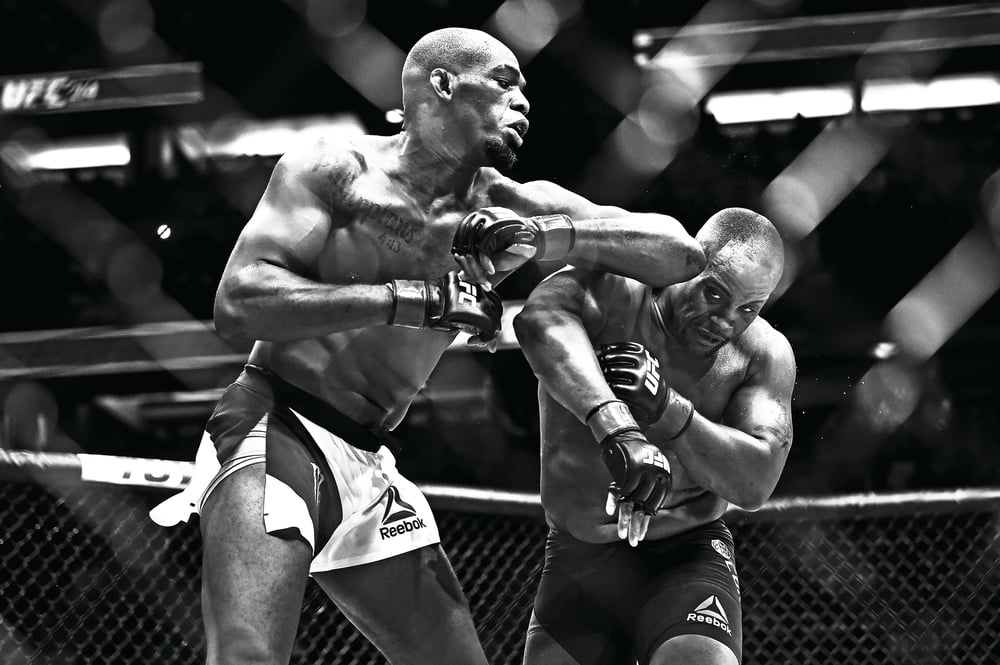
One of the huge fights, I suggest to Jackson, would be Jones against Ngannou, were the heavyweight to gain the UFC belt. “Francis is getting better and better all the time.
He has such devastating power in both hands. The more he fights, the more effective he’s going to be. As dangerous as Francis is now, in a year he’ll be even more dangerous. “Of course, I’d love to see DC and Jon,” he continues, “but it’s whoever they put in front of us and whoever Jon wants to fight. I don’t think about it too much. Jon versus Francis would be pretty cool. It certainly is the Rumble in the Jungle – the power puncher and Jon. I don’t think we’ve ever done a fight in Africa. It’s got to be insane. There’s such an old warrior culture there and it would be really cool to see that expressed in a mixed martial arts arena.”
“For me it’s always a massive undertaking. It’s these fights where one little mistake can cost you everything. That’s my responsibility and I try to take that seriously. It’s not being a fan for me. It’s much more intense. Probably because I’m much more stupid than everybody else, but that’s just my lot.” Fellow coach, Mike Winkeljohn concurs.
“Jon gets up for the big fights. The first time he fought Alex Gustafsson he wasn’t up for it. With Anthony Smith, he wasn’t super motivated, but he trained hard and blew through him. The bigger the challenge, the more Jon steps up and we see him at his best.”
“Francis is a gigantic fight. Ngannou hits so hard. He’s a strong, strong, genetically gifted man. Jon Jones would have to use his intellect] to pick him apart, which I think he would. The difference with a Stipe kind of fight is Jon can fight at long range and wrestle. Ngannou has got to a whole new level and he’s working on his wrestling. In the future, we’re going to see a much improved Ngannou. I’m a big believer in Jon. I think he beats anybody in the world at any time.” So what of a champ-champ fight between Jones and Cormier? “He’s dealt with Daniel before. He’s beaten him twice, so it’s not quite as exciting. Daniel is probably a better fighter at heavyweight, but Jon Jones would be too. Been there done that so it doesn’t excite people as much as the new, giant man.”
Overall, though, Winkeljohn believes it is “a good thing for the sport”, a matching of the mythical David vs Goliath, a test of technique and skills, and often, fans wanting the smaller man to win.
“I think people are inspired by people who are willing to change weight divisions, up or down, and challenge the person next to them” he reasons. “It’s a great opportunity for the fans and the sport itself to see the guys at the peak of their divisions fight each other. It’s a new level in my opinion. They’re going to try and get them to be a similar weight, but I love those David and Goliath stories. Goliath always has the advantage but they can be beat if you have the right cardio, game plan and skillset. Most people root for the smaller guy because most of the world is smaller guys. People root for the underdog.”
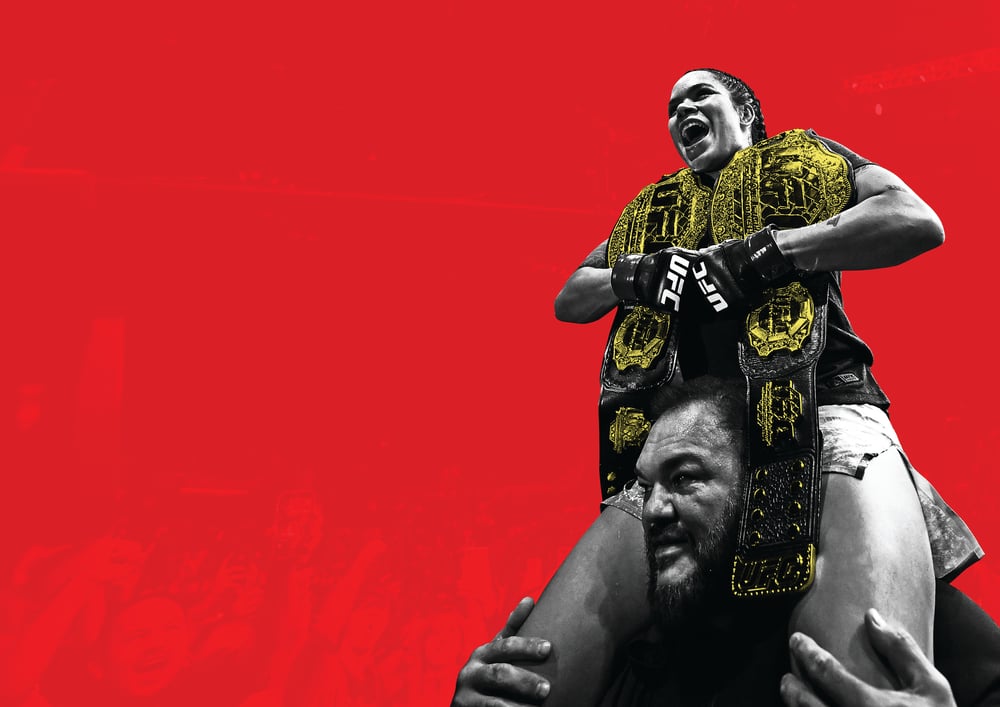
Just as they did with Nunes against Santos. Conan Silveira, coach to Nunes, said that they had studied Cyborg’s movements closely and were convinced that their foe would come out firing. What they also knew, from years of Amanda’s sparring with men and women, was how hard she could bang. And she did. It was a triumph of technique, and great use of her skillset, against a frightening proposition.
Albarracin reckons that the Nunes victory was seminal. “Amanda, that was a huge moment in sports. Nobody could foresee that happening. That was Buster Douglas-Mike Tyson. That was Matt Serra versus GSP. Amanda was a champion as well so we can’t take that away from her, but to go up a weight class and take on somebody who seemed to be invincible and knock her out in the way she knocks everybody out, that was amazing. She is the greatest female fighter of all time because of her credentials and resume. She’d beaten Ronda Rousey and Miesha Tate – and when you beat these high-level opponents and you’re champion, now you ready for these legacy fights.
Now let’s find out who’s the best of the best. If you say Daniel Cormier is pound-for-pound and someone else says Henry is pound-for-pound, DC and Henry aren’t going to fight. But, two weights classes that are close to each other, those kinds of fights can happen and that’s how you show who’s pound-for-pound. That’s what I like about these legacy fights. Because really it’s the only way to find out who is the best pound-for-pound.”
...









